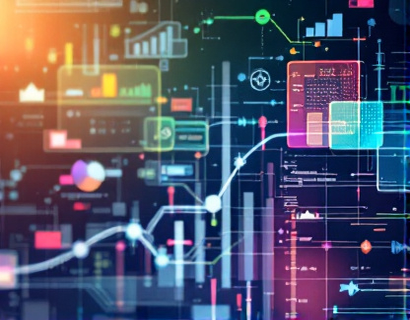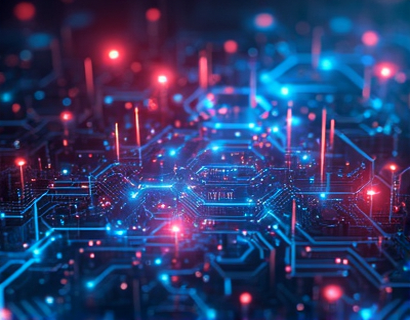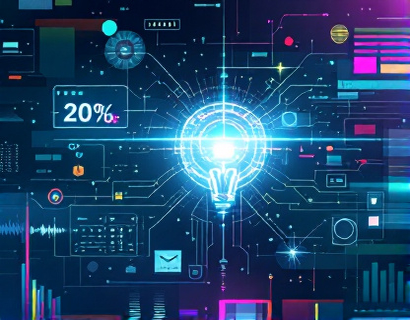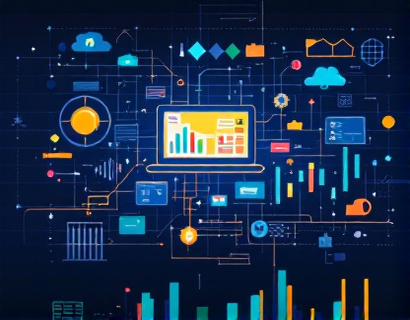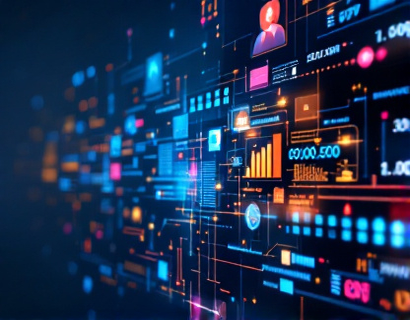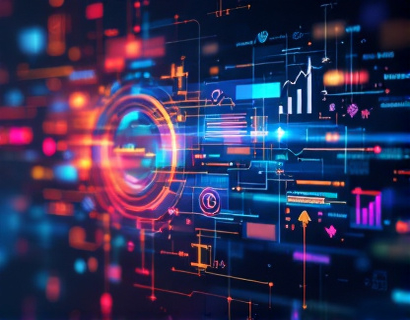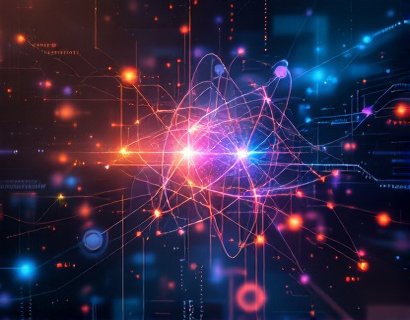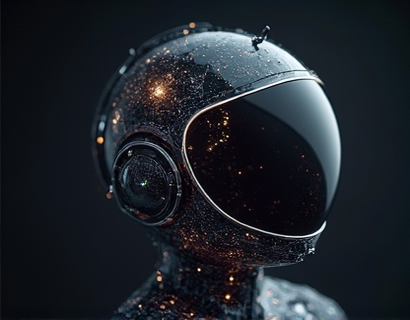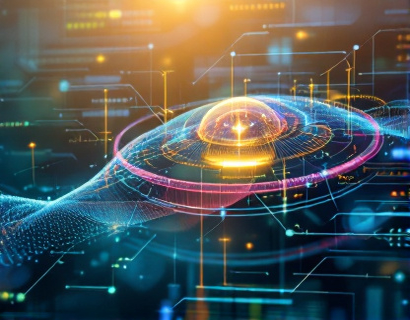Unlocking Next-Gen Productivity with AI and Crypto: A Synergistic Approach
The integration of Artificial Intelligence (AI) and cryptocurrency is paving the way for a new era of productivity enhancement. This synergy is not just about combining two cutting-edge technologies but about creating a holistic ecosystem where digital tools become smarter, more efficient, and deeply integrated into our daily workflows. For tech-savvy professionals and early adopters, this convergence offers unprecedented opportunities to revolutionize how tasks are managed and workflows are optimized.
Understanding the Synergy
The fusion of AI and cryptocurrency brings together the strengths of both domains. AI's ability to process vast amounts of data, learn from patterns, and make intelligent decisions complements cryptocurrency's role in creating decentralized, secure, and transparent systems. This combination can lead to the development of advanced digital solutions that not only enhance productivity but also ensure data integrity and user privacy.
One of the key areas where this synergy shines is in the creation of smart contracts. Smart contracts, powered by blockchain technology, can automate and enforce contractual obligations without the need for intermediaries. When AI is integrated into smart contracts, these contracts can become even more intelligent, adapting to changing conditions and optimizing processes in real-time. This results in more reliable and efficient task management systems.
Enhanced Task Management Systems
Imagine a task management system that uses AI to predict task completion times, allocate resources optimally, and even suggest the best times to tackle specific tasks based on your productivity patterns. Such a system can significantly reduce the time spent on planning and increase the time available for actual work. By leveraging AI algorithms, these systems can continuously learn and improve, adapting to the user's workflow and preferences.
For instance, an AI-driven task manager could analyze historical data to identify patterns in task completion. It could then use this information to predict which tasks are likely to take longer and allocate more time or resources accordingly. Additionally, it could suggest breaking down complex tasks into smaller, manageable steps, thereby reducing the cognitive load and making the work process smoother.
Decentralized Workflow Platforms
Decentralized workflow platforms are another exciting application of AI and cryptocurrency. These platforms use blockchain to create a transparent and tamper-proof environment for task assignment and completion. AI can enhance these platforms by optimizing the matching of tasks to the most suitable team members based on their skills, availability, and past performance.
For example, a decentralized project management platform could use AI to analyze the skills and workload of each team member and automatically assign tasks that best match their capabilities. This not only ensures that tasks are completed efficiently but also helps in skill development and workload balancing. The use of cryptocurrency within these platforms can facilitate seamless and secure payments, eliminating the need for intermediaries and reducing transaction costs.
Smart Workspaces and Automation
The concept of smart workspaces is gaining traction, and the integration of AI and cryptocurrency can take this concept to the next level. Smart workspaces equipped with IoT devices can automate various tasks, from adjusting lighting and temperature to managing inventory and scheduling maintenance. AI can further enhance these workspaces by analyzing data from these devices to optimize operations and predict potential issues before they arise.
Cryptocurrency can play a role in funding and incentivizing the development and maintenance of these smart workspaces. For instance, a tokenized model could be implemented where users contribute tokens to fund upgrades or maintenance, with rewards in the form of utility tokens or discounts on services. AI can manage these token economies, ensuring fair distribution and efficient use of resources.
Data Security and Privacy
Data security and privacy are paramount in any digital solution, and the combination of AI and cryptocurrency offers robust solutions in this area. Blockchain's inherent security features, such as immutability and decentralization, provide a strong foundation for protecting sensitive data. AI can enhance this by implementing advanced encryption methods and real-time threat detection systems.
For example, an AI-powered security system can monitor network activity and identify anomalies that may indicate a security breach. It can then automatically trigger countermeasures, such as isolating affected systems or alerting administrators. Additionally, AI can help in managing access controls, ensuring that only authorized users can access specific data, thereby maintaining privacy and compliance with regulations.
Personalized Productivity Tools
AI-driven personalized productivity tools are revolutionizing the way professionals work. These tools use machine learning algorithms to understand individual work styles and preferences, providing tailored recommendations and automating repetitive tasks. By integrating cryptocurrency, these tools can offer a decentralized and user-centric approach to productivity enhancement.
For instance, a personalized productivity assistant could use AI to analyze a user's workflow and suggest optimizations, such as the best time to check emails or the most efficient way to manage multiple projects. This assistant could also facilitate micro-transactions using cryptocurrency to reward users for completing tasks or collaborating with others, creating a gamified and incentivized work environment.
Future Trends and Innovations
The future of AI and cryptocurrency in productivity enhancement is promising, with several emerging trends and innovations on the horizon. One such trend is the development of AI-powered virtual assistants that can operate across multiple platforms and devices, providing a seamless and integrated productivity experience. These assistants can use blockchain to ensure data consistency and security across different environments.
Another area of innovation is the use of AI in natural language processing (NLP) to create more intuitive and conversational interfaces for productivity tools. Combined with cryptocurrency, these interfaces can offer decentralized marketplaces where users can exchange services and resources using smart contracts, further enhancing collaboration and efficiency.
Furthermore, the integration of AI and cryptocurrency in the Internet of Things (IoT) is set to transform how we manage and interact with physical devices. AI can optimize the performance of IoT devices, while cryptocurrency can facilitate secure and transparent transactions for device maintenance and data sharing. This synergy can lead to smarter homes, offices, and cities, where devices work together harmoniously to enhance productivity and quality of life.
Conclusion
The convergence of AI and cryptocurrency is unlocking new possibilities for productivity enhancement, offering tech-savvy professionals and early adopters a glimpse into a future where digital tools are smarter, more efficient, and deeply integrated into our workflows. By leveraging the strengths of both technologies, we can create advanced digital solutions that not only streamline tasks but also ensure data security and user privacy. As these innovations continue to evolve, the potential for transforming the way we work and collaborate becomes increasingly exciting.





